Fannah Palmer’s Choice: Nadia de Vries and Aya Sabi
Every month, a translator of Dutch into English gives literary tips by answering two questions: which translated book by a Flemish or Dutch author should everyone read? And, which book deserves an English translation? To get publishers excited, an excerpt has already been translated. Translator and editor Fannah Palmer presents two remarkable novels starring intriguing female characters.
Must-read: ‘Thistle’ by Nadia de Vries
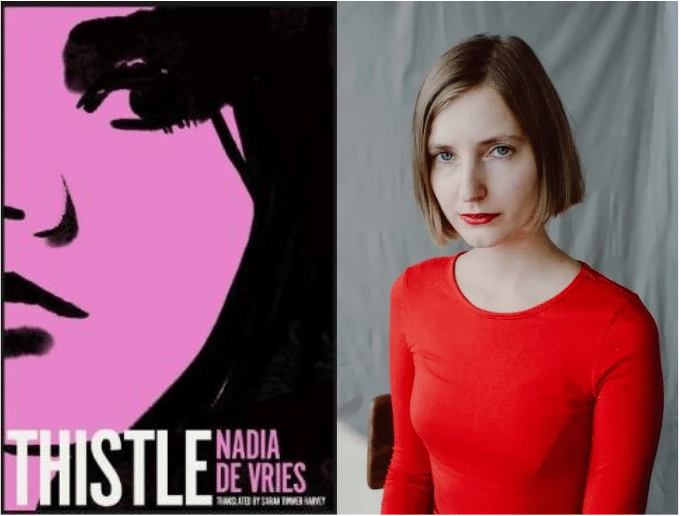 Nadia de Vries
Nadia de Vries© Lola Noir
English-speaking readers may already be familiar with Dutch author Nadia de Vries, who has published three poetry collections in English, the latest of which is Know Thy Audience (Moist Books, 2023). Next month, however, the English translation of her debut novel Thistle (original title: De bakvis, 2022) will be published. Nadia chose not to translate it herself, but to work with Sarah Timmer Harvey, who has previously translated, among others, International Booker Prize nominee Jente Posthuma’s What I’d Rather Not Think About.
Thistle, a woman in her thirties, is newly confronted with the loss of her father, who died twenty years earlier. The grief and confusion she feels manifest themselves in absurd ways, to say the very least. One of Thistle’s ways to cope is by posting pictures of her teenage self on the internet, which doesn’t exactly have the effect she aimed for.
Nadia de Vries wrote her PhD thesis on the presence and meaning of human bodies – especially dead bodies – in digital realms. I imagine this served as the perfect background for a novel about a woman dealing with grief, the internet and the transformation of her own (female) body. But Thistle reads nothing like a thesis. In her fiction (and poetry), De Vries tends towards the surrealistic and outright bizarre. I attended the Dutch book presentation; one of the editors compared De Vries’ writing to Kafka’s.
That might be enough said. I suppose you either like Kafka or you don’t, but I was at least curious to find out whether the comparison was deserved. A glimpse of the absurdities passing in review: bright purple boots, weasels climbing in curtains, talking moths, neighbours barbecuing human meat… Curious yet? Thistle will be published in October!
Nadia de Vries, Thistle, translated by Sarah Timmer Harvey, HetMoet, Amsterdam, 2024, 200 pages
To be translated: ‘Half leven’ by Aya Sabi
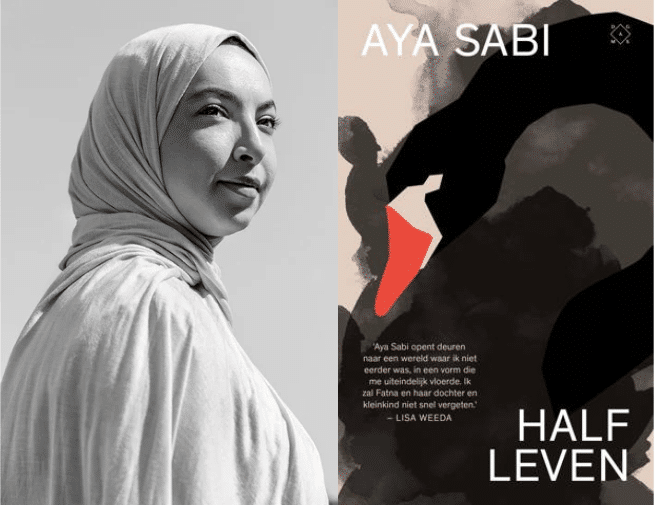 Aya Sabi
Aya Sabi© Jildiz Kaptein
Reading Aya Sabi’s Half leven (‘Half a Life’) a few years ago, I immediately knew it would be one of my all-time favorite Dutch-language books. Now I gift the book to all of my friends. Das Mag, the publisher, asked me to translate a short sample for them to send to agents and see if it could be translated. So far it hasn’t been picked up, but I strongly believe that it should be.
The book features three Moroccan women in different times and places. The first woman, Fatna, works as a personal cook in Morocco in the 1950s. The second – nameless – woman lives in the Netherlands in the late 1970s and writes letters to her lover. Lastly, three essays, written by a woman called Shams, are interspersed throughout the book. Judging from phrases like ‘hashtag besties for life’, they are contemporary.
Sabi writes in a pleasantly matter-of-fact, yet sneakily poetic way. What’s more, Half leven made me realize how little I know about Morocco, its history and its people. Reading this book, written by someone with such personal ties to the country, is not only educational, but touching too. Sabi’s perspective shouldn’t be confined to a single language.
Aya Sabi, Half leven, Das Mag, Amsterdam, 2022, 305 pages
Excerpt from ‘Half leven’, translated by Fannah Palmer
The next day, we take a stroll through the garden for the first time. His name is Hmed. I call him Hmida. We slow our pace by the day, because we don’t want to come full circle, when we arrive back at the start and the day ends. If the garden were bigger, with more winding and intersecting walks, we could get lost, hide from the tattling maids and Lalla Touria’s all-seeing eye, but the garden only has a single walk and it feels very odd to take one step forward and two steps back. Only on the third evening do I tell him my name, because I know he’ll never ask if I don’t, but I convince myself that I do it because I have become that type of woman. Or rather, because I have decided to be that type of woman; the type that doesn’t wait for someone else to decide to start a conversation, a stroll, or a life with her. It’s strange to say something no one has asked you about, but at the same time, it’s strange to go on three strolls with someone who doesn’t even know your name.
He has filled two entire strolls, from beginning to end, with his own stories. He is a man, he is Lalla Touria’s radio repairman, he is a member of the resistance, he creates every scene himself, except for the insurmountable scenes, those consisting of fate and series of small coincidences, created by God. Unlike me, but now I make the food. That’s at least something. During our strolls, half of his words go right by me, but I’m not planning on asking any questions. He is probably used to women lying to him and saying they’ve seen him before, trying to draw out the conversation as much as possible, only to go on and claim that it must have been on one of those film posters. That he looks just like that handsome foreign actor. I’m not that kind of woman; I decided so earlier and I can’t go back on it now. If I do, chaos will return to my life, everyone will die.
I pick up words like the nationalists, ‘Greater Morocco’, getting the sultan back into the country, some protectorate. Every bit of information Lalla Touria gathers, he immediately passes on. ‘The secret radio channels allow me to contact headquarters that very same night, the great thing about sound waves is they’re invisible, every word moves through the air for a few seconds and then it’s gone. The French are groping blindly about, they think we’re too stupid to use their own technology against them. We have to be very precise, not a single piece of information can be lost. There’s no room for absent-mindedness if you want to free a country. Maybe you have room for it in the kitchen; if your pancakes don’t turn out great today, you can probably try again tomorrow. That’s not the case for us; if you’re weakened today, you’ll instill your enemy with confidence and weaken your own men even further.’
I tell him my pancakes always turn out great. He goes back inside. I feel like yelling ‘I hate you!’ at his back, but in this moment it’s better if I stay silent. I don’t even know who he is.


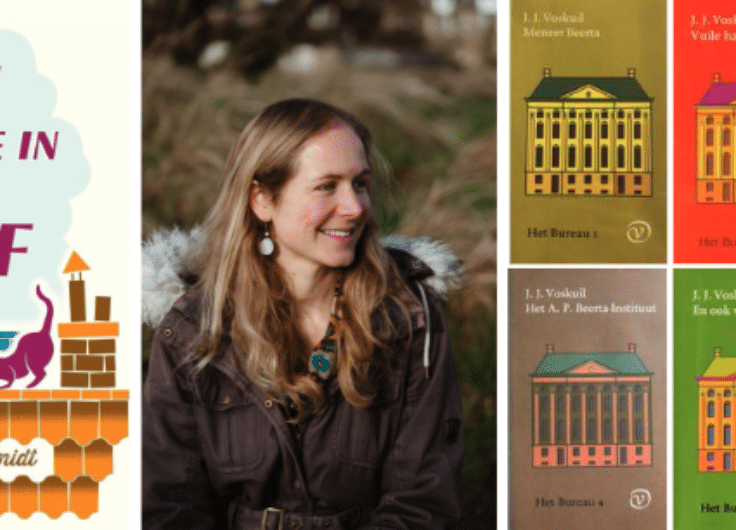
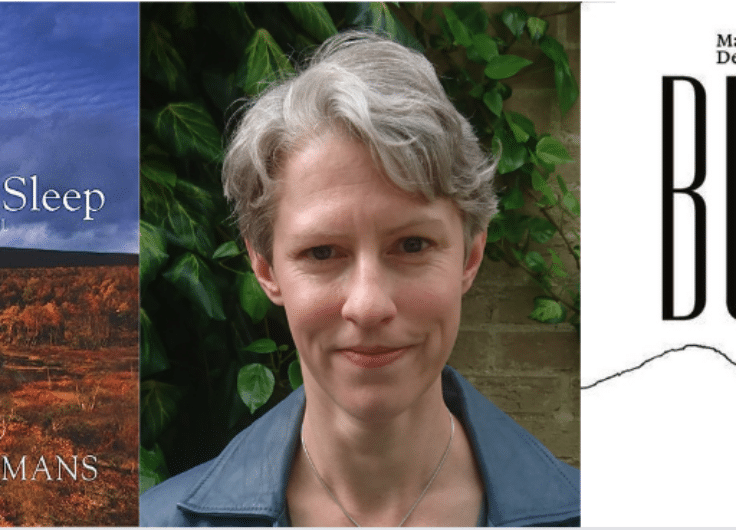
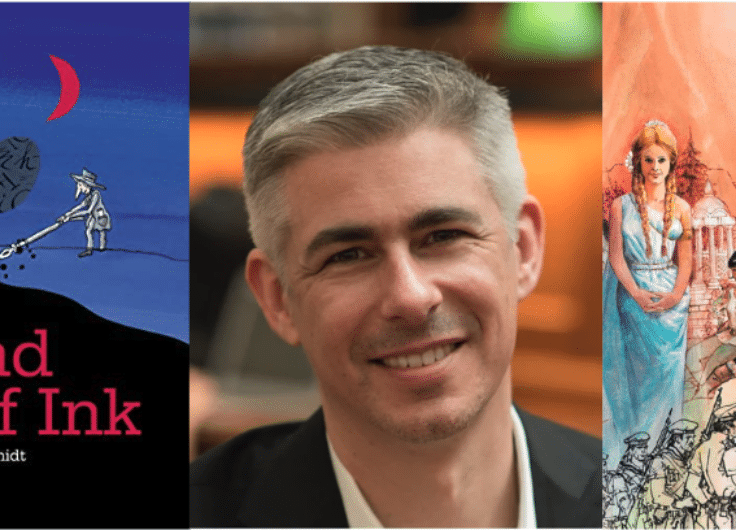
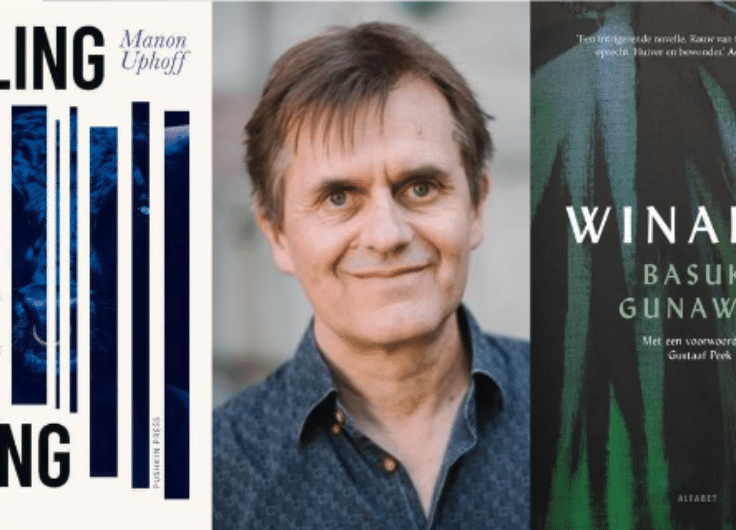
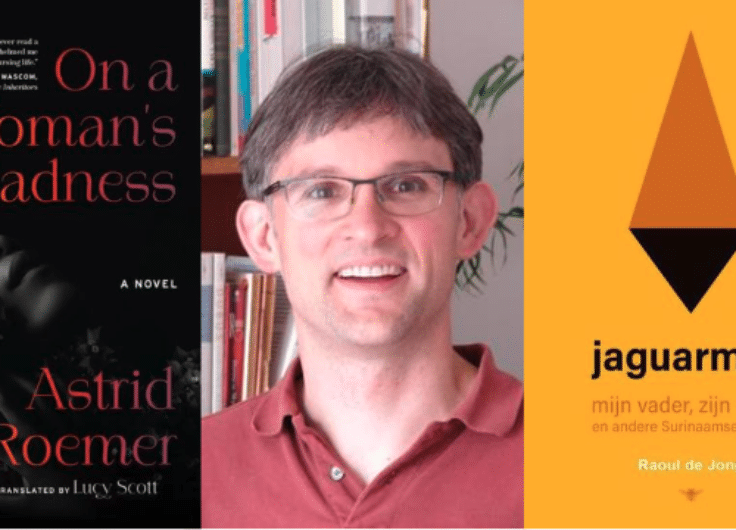
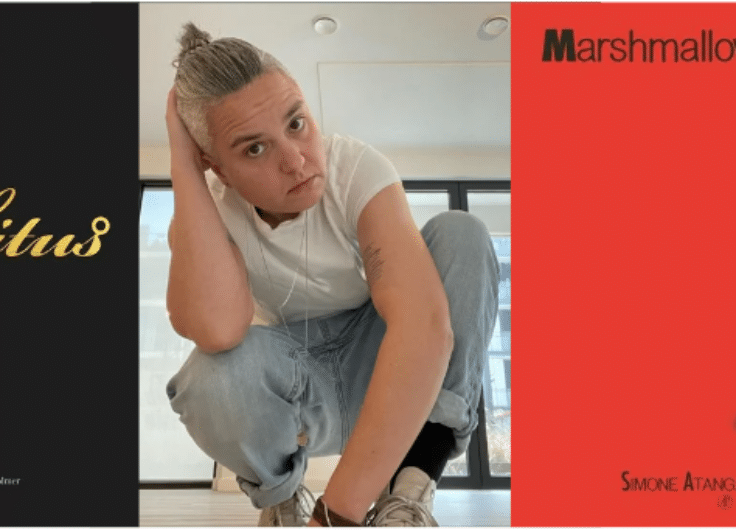
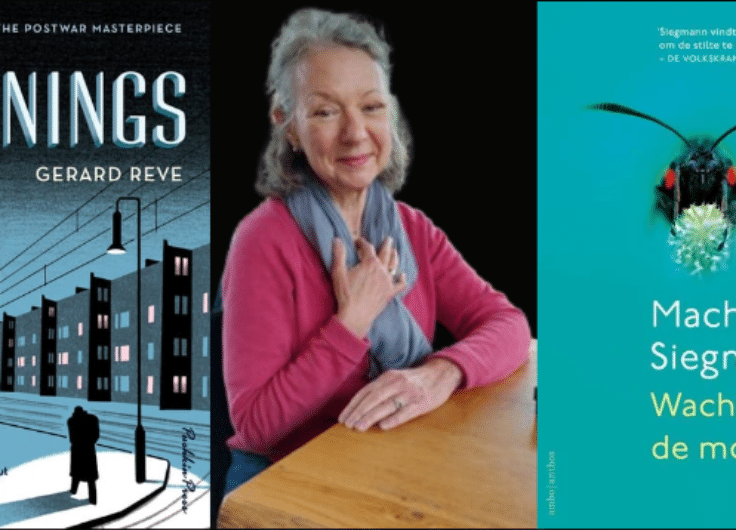
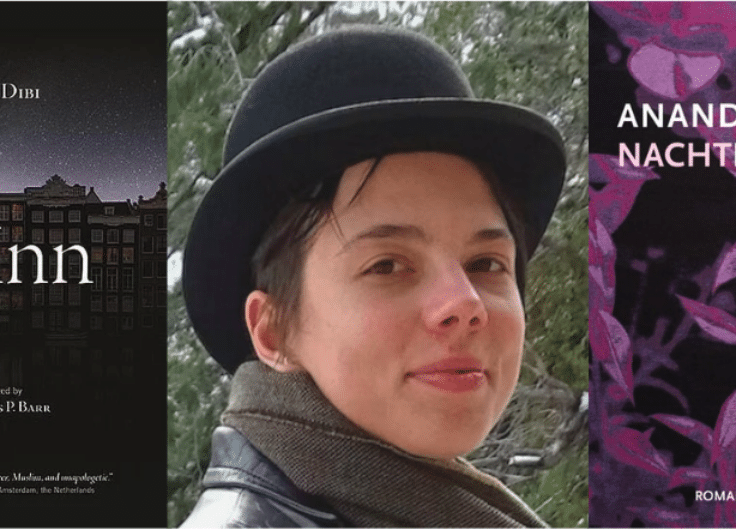
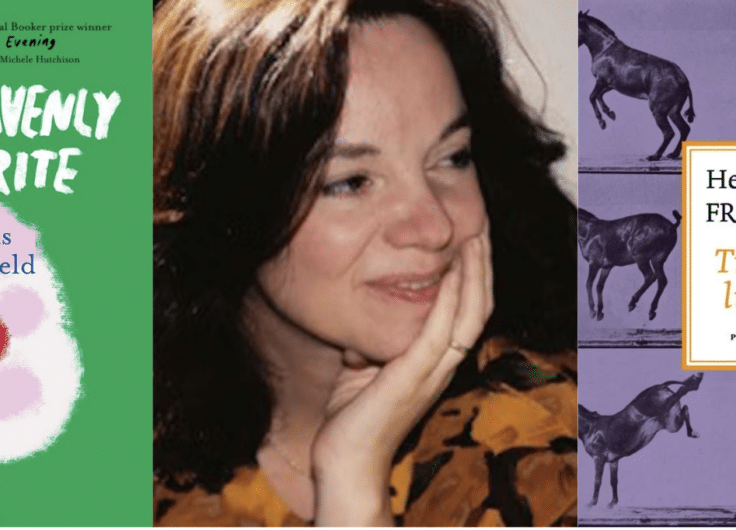
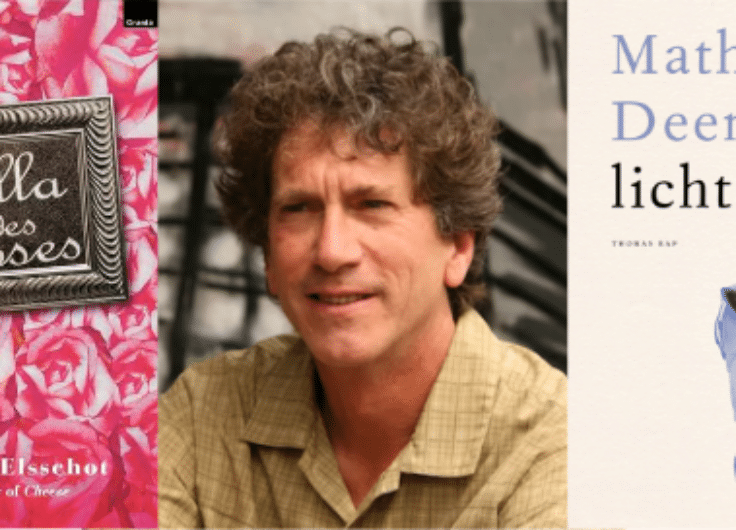
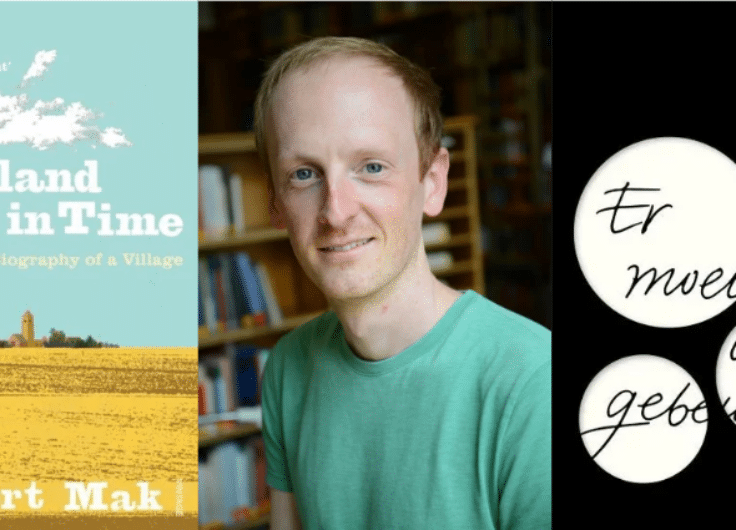
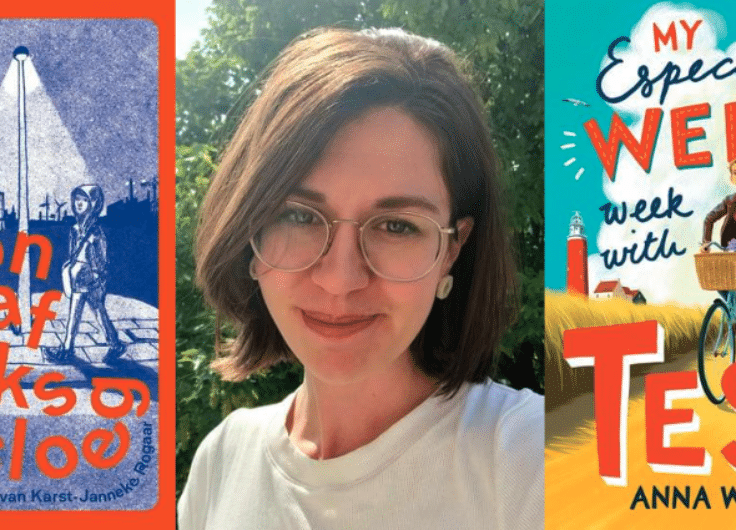
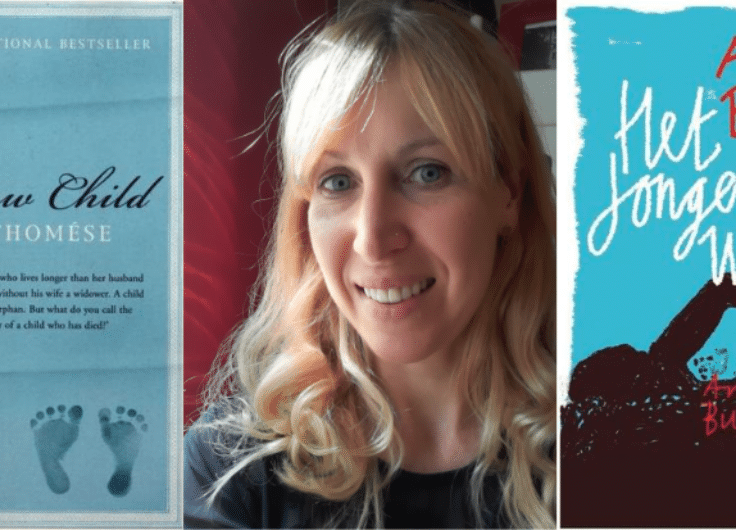
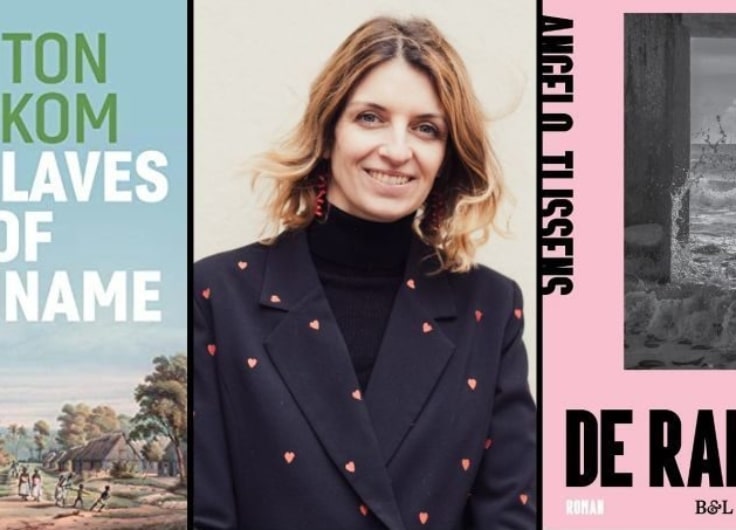
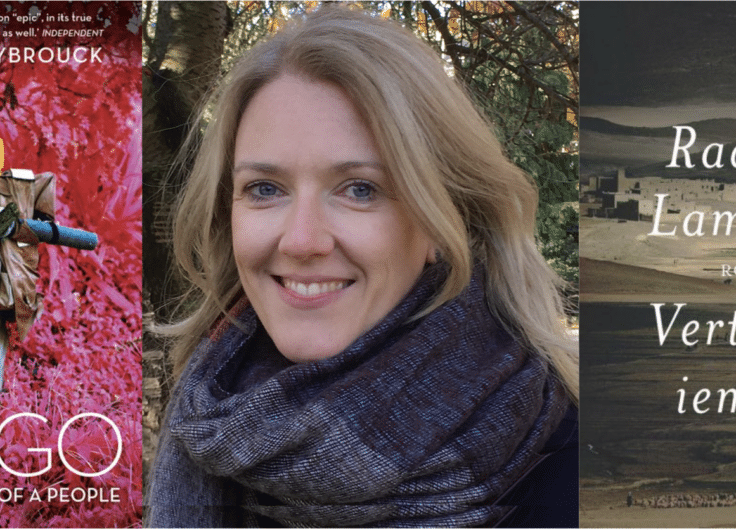



Leave a Reply
You must be logged in to post a comment.